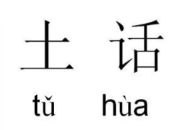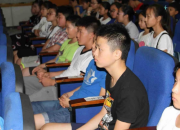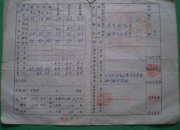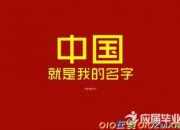历年河北中考英语试题及考点分析总结报告
时间:2021-08-31篇一:历年河北中考英语试题及考点分析总结
名词时表示人、事物、地点、或抽象概念的名称的词,它是中考考察的高频词汇之一,通常占考试题的百分之时左右。考察名词的题型有很多,有单项填空、完成句子、句型转换、用所给的单词的适当形式填空等。中考试题对名词的考察涉及名词数的变化,特别是名词复数的不规则变化;对可数名词和不可数名词的区分,专有名词的做法以及近义词辨析等。词意理解、不可数名词的数量表示法、名词所有格、名词作定语也是考察的热点。 一、名词的分类
(1)可数名词有单、复数两种形式,而不可数名词只有单数形式。
pen→pens钢笔 bread面包
(2)不定冠词、基数词可直接修饰可数名词,表示数量;而不可数名词在表示数量时则用“不定冠词/基数词+单位名词+of+不可数名词”。
an apple ,two pictures, a piece of bread , four glasses of water (3) 可数名词复数前可用many , few, a few ,several 等修饰;不可数名词前可用much ,little ,a little 等修饰。Some和any 既可以修饰可数名词,也可以修饰不可数名词。
三、名词的复数形式 (1)可数名词的规则变化 1)一般加s
2)s; sh; ch; x 结尾加 es 读 [iz] 3) ce; se; ze; (d)ge 结尾加 s
eg. box [b ks blous
4)f (fe) 结尾则变f(fe)为v加es---读[vz] eg. kniv]
5) ―辅+y‖结尾变y为i加es 清就清[s] 浊就浊[z]
eg. book[buk pen[pen] babi] (2)可数名词的不规则变化
man—men ; woman—women ;child—children policeman—policemen Englishman—Englishmen Frenchman—Frenchmen
foot—feet ; tooth—teeth mouse(鼠)—mice 但注意以下几点:
① potato—potatoes ; tomato—tomatoes
② 单复同形: fish ; sheep ; deer ; Chinese ; Japanese
③ 由man , woman在词首构成的复合名词应将两部分都变成复数 man doctor — men doctors ④ reef—reefs
⑤ “某国人”的复数:中日不变英法变,其余s加后面. eg. German—Germans
⑥ people , police 常用单数形式表示复数概念 The police are looking for the missing boy. 3、名词所有格:名词’s (意思是 ―??的‖) A.有生命的名词所有格,一般在后加“’s”但注意: 1)表两者共有则在后者加“’s”
Lucy and Lily’s father 露西和莉莉的父亲
Lucy’s and Lily’s fathers露西的父亲和莉莉的父亲. 2)以s结尾的词只加“ ’ ”
eg. 1) the boys’ books 2) James’ father 3)无生命的名词所有格用of来引导 eg. the leg the desk
4)双重所有格:a friend of my father’s
a friend of mine ( √ ) a friend of my( × )
1. ( 2007 河北 29)__room is big and bright. They like it very much. A. Tom and Sam B. Tom's and Sam C. Tom and Sam's D. Tom's and Sam's
2. ( 2006 河北 27)-Would you like some drinks ,boys? --Yes,_________, please.
A. some oranges B. two boxes of chocolates C. some cakes D. two bottles of orange
3. ( 2005 河北 36)"It's over ________from Shijiazhuang to Beijing. A. three hours' drive B. three hour's drive C. three hours' drives D. three hours drive
4. (2004 河北 37 ) This is _______ bedroom. The twin sisters like it very much. A. Anne and Jane B. Anne's and Jane's C. Anne's and Jane D. Anne and Jane's
5. (2003 河北) The doctor worked for __after twelve o'clock. A. two more hours B. two another hour C. more two hours D. another two hour
6.(2008河北 24). Can you imagine what life will be like in ____ time? A. 20 years’ B. 20 year’s C. 20-years’ D. 20-years
A. Class Third B. Class three C. third Class D. Class Three C. IA Ming, babies D. Li Ming's, babies'
7.(2010 河北 28)I don’t think looking after children is just ____work. A woman B woman’s C women D women’s
8. (2011 河北 30 ) 30. Cici enjoys dancing. It’s one of herA. prize B. prizes C. hobby D. hobbies
9 (2009 河北83) Computer is one of the greatest ___________________ (发明). I can’t imagine life without it.
10 (2011 河北 82)(science) to give them a speech on space. 11 (2010 河北 82)We need eleven _______(play) for our soccer team.
专题二代词
代词是代替名词的词,种类多,用途广,中考试题中出现的频率很高,涉及各个题型,约占中考试题的10%左右,出现较多的不定代词的用法及代词作主语时和谓语动词一致的用法、人称代词主格与宾格的用法区别、形容词性物主代词与名词性物主代词的用法区别等。 (一)指示代词:this , that , these , those. this , that一般与可数名词的单数连用,而不与不可数名词连用(但that可单独指代不可数名词)。 that apple ( √ ) that meat ( × )
The weather in Sichuan is not so hot as ______ in Guangzhou. [that]
①this(复数形式是these),是指时间或空间上离说话的人较近的人或物。That(复数形式是those),是指时间或空间上离说话的人较远的人或物。 ②that/those 有时用来代替前面说过的名词,以避免重复。 (二)人称代词、物主代词和反身代词
① 主格人称在句子中的用法 I like music. ② 宾格人称代词在句子中作动词的宾语或介词的宾语。 We often go to see her on Saturdays.
③ 人称代词作表语时一般用宾格,但在比较正式的场合用主格。 ---Who is it?
---It’s me.(非正式)
一变(my—mine); 二留(his—his its—its)
三加s(your—yours ; our—ours ; her—hers ; their—theirs) 物主代词的用法:
(1) 形容词性物主代词具有形容词的特征,在句子中作定语,后面接名词。 (2) 名词性物主代词具有名词的特征,在句子中可以做主语、表语或宾语。 eg. This is _____(我的)book. This book is ______(我的). [ my ; mine]
反身代词的用法:
(1) 做及物动词或介词的宾语 Did they enjoy themselves last Sunday? (2)作主语或宾语的同位语
在做同位语时,反身代词可多翻译为“本人”或“本身”。但有时为了加强语气,常译为“自己”或“亲自”。起强调作用时,反身代词可以放在被强调词之后,也可以放在句末。 He learned by himself.
(3)反身代词的常见搭配:
enjoy oneself 玩得高兴;过得愉快 hurt oneself 伤着自己
teach oneself = learn… by oneself 自学 (all) by oneself (完全)独立地 help oneself to 请自便;随便吃? look after oneself 自理;照顾自己 leave one by oneself 把?单独留下 lose oneself in 陶醉于?;沉浸于? (五)不定代词
不明确指代个人或事物、某些人或事物的代词叫不定代词。不定代词主要有all ,each ,every ,both ,neither ,one ,little ,few ,many ,much ,other ,another ,some ,any ,no ,还有由some ,any ,no 和 every构成的复合代词。
不定式在句中可以作主语、宾语、表语、定语、同位语等。 1)some与any
一般情况下,some用于肯定句,any用于否定句、疑问句(但表邀请、建议的问句中可用some—此类句型常以could , would开头) 2)
many + 可数 = a lot of : 许多
much + 不可数
(但a lot of不能用于否定句) 3) few , a few ; little , a little
①.The story is easy to read. There are ____new words in it. [few] ②.Hurry up! There is_____ time left. [little] 4) everyone / anyone 不加of ( )____ of us wants to read the book. [B] A. Everyone B. Every one C. Nobody D. No one ①.We study _____ subjects besides Chinese. ②.May I have ___________ apple ?
③.These cups are clean. ________ are dirty.
④.I have two pens. One is red , ________ is blue. [ other ; another ; others ; the others] one another (三者以上的)相互 each other (两者的)相互
We should learn from each other(说明we指两个人) They help one another (说明they指三个人以上)











